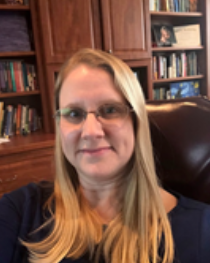Now that you understand how important Power to the Profession is for the early childhood education and how you can best prepare your staff, it’s time to think about how you can engage the community in conversations about the initiative. But where should you start?
We want CCR&Rs to be at the forefront of conversations about the future of the profession, encouraging partners to participate and comment on the recommendations that emerge out of Power to the Profession. That’s why we’ve compiled a list of 10 ideas for you to implement as you engage external partners, such as child care providers and key community stakeholders. For a deeper dive into each of the suggestions, be sure to download our e-book, What CCR&Rs Need to Do Externally for Power to the Profession.
Idea 1: Host Power to the Profession focus groups with early childhood educators
Consider hosting a focus group with early childhood educators in your community, letting them know that their feedback can strengthen the recommendations from the Power to the Profession task force. Be sure to recruit a diverse population of providers, including those who work in:
- Licensed child care centers
- Family child care homes
- Head Start
- School-based centers
- Corporate care
- Community-based centers
Download our e-book for a list of suggested questions to ask your focus group.
Idea 2: Host Power to the Profession focus groups with community partners
In order to understand the questions and concerns from the entire field, host a focus group with professionals that help support the early childhood educators. Consider inviting people from different sectors such as representatives from higher education, K-3rd grade educators, philanthropy, business partners, QRIS administrators, state licensing representatives, and other non-profit organizations.
Idea 3: Use social media to communicate messages about Power to the Profession
Use some of these social media tools from our Power to the Profession share kit to help you educate and inform early childhood educators and generate excitement about the initiative. You can also enlist your most enthusiastic staff members to host a FaceBook Live event to reach early childhood educators.
Idea 4: Use coaching and professional development opportunities to share information about Power to the Profession
Some CCR&R agencies interact with early childhood educators on a daily basis. Use these opportunities to inform them about Power to the Profession. Have your professional development and coaching staff share some of the videos on the Power to the Profession website at trainings or during coaching visits.
Idea 5: Identify messengers within the early childhood educator community
Find several early childhood educator advocates that can help your CCR&R agency spread the word and enthusiasm for Power to the Profession. Encourage these educators to talk to others within their professional circles about the goals and recommendations of the initiative.
Idea 6: Empower Power to the Profession advocates to talk to teachers and direct service professionals
Develop talking points and social media tools for advocates to post on their social media accounts or use these social media tools. Consider hosting a training for the advocates to ensure a consistent message is being communicated throughout your community.
Idea 7: Attend early childhood educator association and networking meetings
Connect with established networking and association meetings where early childhood educators convene. Ask to speak to these groups about Power to the Profession, or ask the meeting host if you could use a portion of the meeting time for a focus group.
Idea 8: Talk about Power to the Profession with your community partners and start a strategic planning process
Use the recommendations from the Power to the Profession that have already been released to begin a community-wide strategic planning process with your partners. It will be an opportunity to create momentum around the early childhood profession. This workplan guide can help you get started.
Idea 9: Develop a business card or postcard with your agency logo
Create a business card or postcard with a Quick Response (QR) code. People can scan the QR code with their smartphone and be linked to the Power to the Profession website. Use this business card at community events, network meetings, professional development trainings, coaching visits, and other events to help inform your partners about Power to the Profession. When a Decision Cycle is open for comment you can have the QR Code link to the survey.
Idea 10: Reach out to community organizations that work with diverse populations
Think about how your CCR&R agency can develop partnerships with community organizations that serve people who may speak a language other than English. It is critically important for these educators’ voices to be heard by the task force. Consider working with community centers and faith-based organizations that regularly work with refugee populations to co-facilitate focus groups with you around Power to the Profession. They may even be able to offer translation services to help with any language barriers.
We hope you find these ideas and suggestions useful. We want to hear you from you! Send us an email at P2P@usa.childcareaware.org and tell us how you are spreading the news about Power to the Profession.






